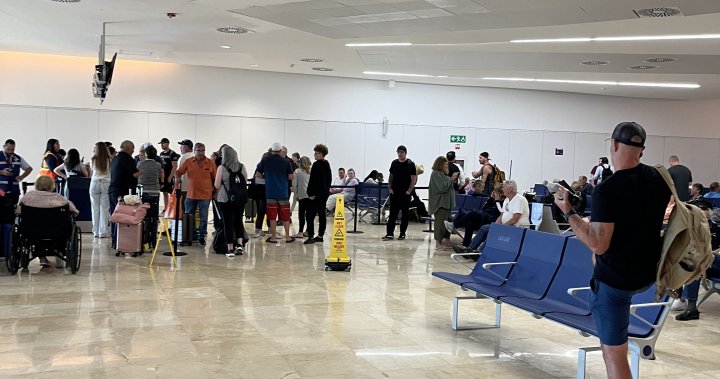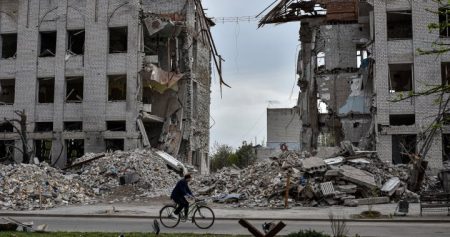The ordeal began on Thursday afternoon at Cancun International Airport for hundreds of WestJet passengers booked on flight WS2249 to Calgary. After two minor hour-long delays, the passengers were informed of the flight’s cancellation, a jarring announcement that sent them back to their hotels approximately six hours after their initial arrival at the airport. This marked the beginning of an unexpected extended stay in Mexico, a vacation extension no one had anticipated or desired. Families with young children, eager to return home, found themselves thrust into a state of uncertainty and frustration, their vacation bliss replaced by mounting anxieties.
Alim Kara, traveling with his wife and two young sons, ages six and eighteen months, described the harrowing experience. He recounted spending nearly sixteen hours at the airport over two days, shuttled back and forth with little information and no clear resolution. The prolonged wait, coupled with the airport’s chaotic environment, took a toll on his children, leaving them tired and unwell. The Karas’ experience mirrored that of many other families, highlighting the widespread impact of the flight cancellation and the ensuing communication breakdown between the airline and its passengers.
James Faulkner, another passenger caught in the predicament, recounted a restless night at the hotel. While some might have viewed an unexpected extra night in a resort as a bonus, the lack of information about the next day’s flight created an underlying tension, preventing any genuine relaxation. The uncertainty surrounding their return journey loomed large, overshadowing any potential enjoyment of the extended stay. This highlights a crucial aspect of travel disruption – the psychological impact of uncertainty, which can transform a potentially positive situation into a stressful ordeal.
Early Friday morning, hundreds of passengers assembled in the hotel lobby, only to be informed that they would be transported back to the airport at 9:00 a.m. Upon their return to the airport, the passengers faced further short delays, again without any explanation from WestJet representatives. This lack of communication further amplified their frustration and anxiety. Faulkner pointedly criticized WestJet’s communication strategy, highlighting the airline’s failure to keep passengers informed about the evolving situation. Transparent and timely communication is crucial in managing passenger expectations and mitigating the negative impacts of such disruptions.
By 2:00 p.m., the passengers learned of a problem with the plane’s climate control system. While a few fortunate passengers managed to secure seats on another WestJet flight to Calgary that afternoon, the majority, including Faulkner and Kara, remained stranded. Faulkner expressed his disappointment with WestJet’s handling of the situation, suggesting that the airline should have acknowledged the futility of the situation earlier and allowed the remaining passengers to return to their hotels, offering them a chance to salvage some semblance of their vacation.
For Kara, the ordeal had reached a breaking point. He needed to return home to address work commitments and was deeply concerned about the well-being of his children, who were struggling with the extended delays. He described the experience as one of the toughest his family had endured, underscoring the significant emotional and logistical challenges faced by stranded passengers. The delays had cascaded into other aspects of their lives, creating a ripple effect of disruption beyond the immediate inconvenience of the cancelled flight.
In a statement released Friday night, WestJet acknowledged the multiple cancellations due to unscheduled maintenance and apologized for the inconvenience experienced by their guests in Cancun. The airline confirmed that both parts and maintenance personnel were en route to Cancun to address the aircraft’s issues and assured that the affected passengers would be on a flight home on Saturday. While the promise of a Saturday flight offered a glimmer of hope, it did little to alleviate the immediate frustration and exhaustion experienced by the stranded passengers, who had endured two days of uncertainty and disruption. This incident underscores the importance of proactive communication and contingency planning in the airline industry, particularly when dealing with unforeseen circumstances that impact a large number of passengers.










